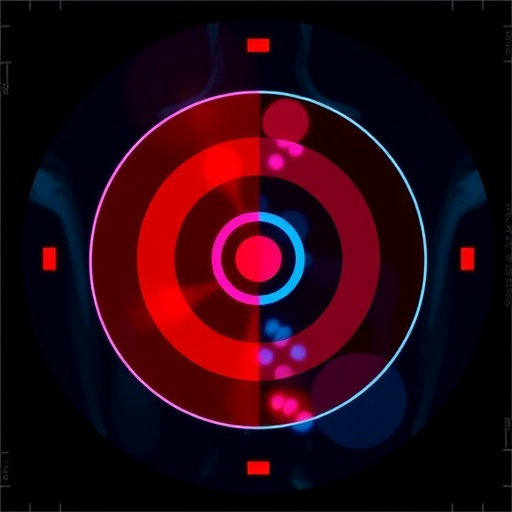PROTECT YOUR DNA WITH QUANTUM TECHNOLOGY
Orgo-Life the new way to the future Advertising by Adpathway
In an era marked by advancements in medical research and collaborative healthcare strategies, a recent study has illuminated significant findings regarding the management of stroke in older patients. Published in Eur Geriatr Med, the research spearheaded by Oquendo et al. reveals an intriguing correlation between the collaborative stroke pathway and improved survival rates in elderly stroke patients. This progressive approach to stroke management interweaves the expertise of various healthcare professionals, aiming to provide optimized care tailored to the needs of vulnerable populations.
Age is often a formidable factor influencing the outcomes of medical conditions. The implications of stroke in older adults have long been the subject of rigorous scrutiny due to their inherently higher risk for complications and mortality. The findings of this pivotal study emphasize how structured teamwork within healthcare settings can dramatically transform the prognosis for elderly individuals struck by stroke. Rather than relying on isolated practices, the research advocates for a system where healthcare providers unite under a shared goal: enhancing patient care and outcomes through collaboration.
The collaborative stroke pathway involves an intricate network of healthcare professionals including neurologists, geriatricians, rehabilitation specialists, and nursing staff. Each professional plays a distinct role in the decision-making process, ensuring that patients receive not only immediate medical intervention but also ongoing support that caters to their geriatric needs. By fostering communication and collaboration among team members, hospitals may facilitate more holistic care for older patients.
One of the critical elements underscored in the study is the timeliness of treatment. In stroke management, every second counts. Early intervention is paramount in minimizing brain damage and improving recovery outcomes. The collaborative framework allows for quicker decision-making, ensuring that older patients are transported to appropriate facilities and that necessary treatments—such as thrombolysis—are administered without delay. The evidence presented reveals that patients in collaborative care environments experience shorter wait times for interventions.
Moreover, this study highlights the importance of tailored rehabilitation strategies. After a stroke, rehabilitation is crucial for regaining independence and quality of life. The collaborative approach ensures that rehabilitation plans are not one-size-fits-all but rather personalized solutions crafted through the collective expertise of the healthcare team. Physical therapists, occupational therapists, and speech-language pathologists contribute their insights, enabling a comprehensive rehabilitation strategy that addresses the multifaceted challenges faced by older stroke survivors.
From a healthcare policy perspective, the findings carry significant weight. As healthcare systems around the world grapple with aging populations and rising incidences of stroke, the necessity for innovative care models becomes increasingly critical. Policymakers are encouraged to examine how funding and resources can be aligned to support collaborative stroke pathways, particularly in geriatric care. This change is not merely beneficial; it is essential to meet the burgeoning demands posed by our ever-aging society.
One of the most striking revelations of the study is the measurable impact of collaboration on long-term outcomes. The results demonstrate that not only do older patients fare better during the acute phase following a stroke, but they also demonstrate improved rates of functional independence and overall survival in subsequent months and years. Such findings bolster the case for integrative care strategies, suggesting that improved patient outcomes are not just a matter of immediate medical intervention but are substantially influenced by the quality and efficiency of the collaborative framework enacted by healthcare teams.
Additionally, the research underscores the necessity for continuous training and professional development in collaborative practices. As the landscape of healthcare evolves, preventing siloed approaches to treatment becomes vital. Ongoing education ensures that all team members are equipped with the latest evidence-based practices, enhancing team dynamics and fostering a culture of shared knowledge and innovation. The implications of robust collaborative models may extend beyond just stroke care, potentially influencing other areas of geriatric management and chronic disease care.
Challenges remain, however, in implementing such comprehensive approaches universally. There is a need for a nuanced understanding of the unique needs of older patients, as well as the structural and organizational barriers that may hinder effective collaboration. Addressing these challenges is pivotal, as resistance to change within established healthcare systems can impede progress. Engaging stakeholders across the spectrum of care delivery— from hospital administrators to frontline providers— is crucial for dismantling these barriers.
Integrating technology into collaborative stroke pathways presents another exciting avenue for improving patient care. Telemedicine, electronic health records, and decision-support tools can facilitate real-time communication and coordination among team members, reinforcing the effectiveness of collaborative models. In particular, telehealth has emerged as a powerful tool, especially for remote consultations and follow-up care, which can be invaluable for older patients who may face mobility and transportation challenges.
In conclusion, the findings from Oquendo et al. herald a new dawn in stroke management for older patients. As the healthcare community fervently pursues methodologies that prioritize not only survival but quality of life, embracing collaborative approaches undoubtedly serves as a cornerstone for progress. The intersection of geriatric care and cooperative medicine may very well define the future landscape of healthcare, ensuring that our aging population not only survives strokes but also thrives in the aftermath.
Notably, the advancements suggested in this study urge an introspective examination of how medical practices can harness teamwork to unravel the complexities of elder care. As we move forward, the scars left by a stroke will be met with more than just individual heroics; they will be mended by an integrative tapestry of collaborative healthcare strategies designed for longevity, resilience, and dignity for our older adults.
Subject of Research: Stroke management in older patients through collaborative pathways
Article Title: Better survival of older patients with stroke managed in a collaborative stroke pathway
Article References: Oquendo, B., Jarzebowski, W., Nouhaud, C. et al. Better survival of older patients with stroke managed in a collaborative stroke pathway. Eur Geriatr Med 16, 1551–1558 (2025). https://doi.org/10.1007/s41999-025-01225-9
Image Credits: AI Generated
DOI: https://doi.org/10.1007/s41999-025-01225-9
Keywords: Stroke, Elderly patients, Collaborative care, Geriatric medicine, Healthcare integration, Patient outcomes
Tags: collaborative stroke managementelderly healthcare managementelderly stroke patient outcomesgeriatric stroke treatment strategieshealthcare collaboration in geriatricsimproved stroke prognosis through teamworkinterdisciplinary healthcare teamsmedical research in stroke treatmentmultidisciplinary approach to stroke careoptimized care for vulnerable populationsstroke care pathwaysstroke survival rates in older adults


 4 hours ago
9
4 hours ago
9





















 English (US) ·
English (US) ·  French (CA) ·
French (CA) ·